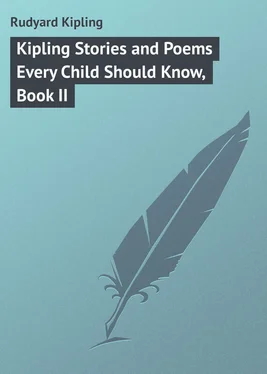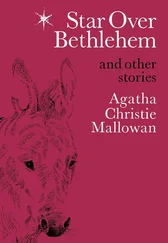Rudyard Kipling - Kipling Stories and Poems Every Child Should Know, Book II
Здесь есть возможность читать онлайн «Rudyard Kipling - Kipling Stories and Poems Every Child Should Know, Book II» — ознакомительный отрывок электронной книги совершенно бесплатно, а после прочтения отрывка купить полную версию. В некоторых случаях можно слушать аудио, скачать через торрент в формате fb2 и присутствует краткое содержание. Жанр: foreign_language, foreign_prose, на английском языке. Описание произведения, (предисловие) а так же отзывы посетителей доступны на портале библиотеки ЛибКат.
- Название:Kipling Stories and Poems Every Child Should Know, Book II
- Автор:
- Жанр:
- Год:неизвестен
- ISBN:нет данных
- Рейтинг книги:3 / 5. Голосов: 1
-
Избранное:Добавить в избранное
- Отзывы:
-
Ваша оценка:
- 60
- 1
- 2
- 3
- 4
- 5
Kipling Stories and Poems Every Child Should Know, Book II: краткое содержание, описание и аннотация
Предлагаем к чтению аннотацию, описание, краткое содержание или предисловие (зависит от того, что написал сам автор книги «Kipling Stories and Poems Every Child Should Know, Book II»). Если вы не нашли необходимую информацию о книге — напишите в комментариях, мы постараемся отыскать её.
Kipling Stories and Poems Every Child Should Know, Book II — читать онлайн ознакомительный отрывок
Ниже представлен текст книги, разбитый по страницам. Система сохранения места последней прочитанной страницы, позволяет с удобством читать онлайн бесплатно книгу «Kipling Stories and Poems Every Child Should Know, Book II», без необходимости каждый раз заново искать на чём Вы остановились. Поставьте закладку, и сможете в любой момент перейти на страницу, на которой закончили чтение.
Интервал:
Закладка:
In an undefined way Punch judged it advisable to keep both parents between himself and the woman in black and the boy in black hair. He did not approve of them. He liked the gray man, who had expressed a wish to be called "Uncleharri." They nodded at each other when they met, and the gray man showed him a little ship with rigging that took up and down.
"She is a model of the Brisk – the little Brisk that was sore exposed that day at Navarino." The gray man hummed the last words and fell into a reverie. "I'll tell you about Navarino, Punch, when we go for walks together; and you must n't touch the ship, because she's the Brisk ."
Long before that walk, the first of many, was taken, they roused Punch and Judy in the chill dawn of a February morning to say Good-bye; and of all people in the wide earth to Papa and Mamma – both crying this time. Punch was very sleepy and Judy was cross.
"Don't forget us," pleaded Mamma. "Oh, my little son, don't forget us, and see that Judy remembers too."
"I've told Judy to bemember," said Punch, wiggling, for his father's beard tickled his neck. "I've told Judy – ten – forty – 'leven thousand times. But Ju 's so young – quite a baby – is n't she?"
"Yes," said Papa, "Quite a baby, and you must be good to Judy, and make haste to learn to write and – and – and – "
Punch was back in his bed again. Judy was fast asleep, and there was the rattle of a cab below. Papa and Mamma had gone away. Not to Nassick; that was across the sea. To some place much nearer, of course, and equally of course they would return. They came back after dinner-parties, and Papa had come back after he had been to a place called "The Snows," and Mamma with him, to Punch and Judy at Mrs. Inverarity's house in Marine Lines. Assuredly they would come back again. So Punch fell asleep till the true morning, when the black-haired boy met him with the information that Papa and Mamma had gone to Bombay, and that he and Judy were to stay at Downe Lodge "forever." Antirosa, tearfully appealed to for a contradiction, said that Harry had spoken the truth, and that it behooved Punch to fold up his clothes neatly on going to bed. Punch went out and wept bitterly with Judy, into whose fair head he had driven some ideas of the meaning of separation.
When a matured man discovers that he has been deserted by Providence, deprived of his God, and cast without help, comfort, or sympathy, upon a world which is new and strange to him, his despair, which may find expression in evil-living, the writing of his experiences, or the more satisfactory diversion of suicide, is generally supposed to be impressive. A child, under exactly similar circumstances as far as its knowledge goes, cannot very well curse God and die. It howls till its nose is red, its eyes are sore, and its head aches. Punch and Judy, through no fault of their own, had lost all their world. They sat in the hall and cried; the black-haired boy looking on from afar.
The model of the ship availed nothing, though the gray man assured Punch that he might pull the rigging up and down as much as he pleased; and Judy was promised free entry into the kitchen. They wanted Papa and Mamma, gone to Bombay beyond the seas, and their grief while it lasted was without remedy.
When the tears ceased the house was very still. Antirosa had decided it was better to let the children "have their cry out," and the boy had gone to school. Punch raised his head from the floor and sniffed mournfully. Judy was nearly asleep. Three short years had not taught her how to bear sorrow with full knowledge. There was a distant, dull boom in the air – a repeated heavy thud. Punch knew that sound in Bombay in the Monsoon. It was the sea – the sea that must be traversed before anyone could get to Bombay.
"Quick, Ju!" he cried, "we're close to the sea. I can hear it! Listen! That's where they've went. P'raps we can catch them if we was in time. They did n't mean to go without us. They've only forgot."
"Iss," said Judy. "They've only forgotted. Less go to the sea."
The hall-door was open and so was the garden-gate.
"It's very, very big, this place," he said, looking cautiously down the road, "and we will get lost; but I will find a man and order him to take me back to my house – like I did in Bombay."
He took Judy by the hand, and the two fled hatless in the direction of the sound of the sea. Downe Villa was almost the last of a range of newly built houses running out, through a chaos of brick-mounds, to a heath where gypsies occasionally camped and where the Garrison Artillery of Rocklington practised. There were few people to be seen, and the children might have been taken for those of the soldiery, who ranged far. Half an hour the wearied little legs tramped across heath, potato-field, and sand-dune.
"I'se so tired," said Judy, "and Mamma will be angry."
"Mamma's never angry. I suppose she is waiting at the sea now while Papa gets tickets. We'll find them and go along with them. Ju, you must n't sit down. Only a little more and we'll come to the sea. Ju, if you sit down I'll thmack you!" said Punch.
They climbed another dune, and came upon the great gray sea at low tide. Hundreds of crabs were scuttling about the beach, but there was no trace of Papa and Mamma not even of a ship upon the waters – nothing but sand and mud for miles and miles.
And "Uncleharri" found them by chance – very muddy and very forlorn – Punch dissolved in tears, but trying to divert Judy with an "ickle trab," and Judy wailing to the pitiless horizon for "Mamma, Mamma!" – and again "Mamma!"
THE SECOND BAG
Ah, well-a-day, for we are souls bereaved!
Of all the creatures under Heaven's wide scope
We are most hopeless, who had once most hope,
And most beliefless, who had most believed.
All this time not a word about Black Sheep. He came later, and Harry, the black-haired boy, was mainly responsible for his coming. Judy – who could help loving little Judy? – passed, by special permit, into the kitchen and thence straight to Aunty Rosa's heart. Harry was Aunty Rosa's one child, and Punch was the extra boy about the house. There was no special place for him or his little affairs, and he was forbidden to sprawl on sofas and explain his ideas about the manufacture of this world and his hopes for his future. Sprawling was lazy and wore out sofas, and little boys were not expected to talk. They were talked to, and the talking to was intended for the benefit of their morals. As the unquestioned despot of the house at Bombay, Punch could not quite understand how he came to be of no account in this new life.
Harry might reach across the table and take what he wanted; Judy might point and get what she wanted. Punch was forbidden to do either. The gray man was his great hope and stand-by for many months after Mamma and Papa left, and he had forgotten to tell Judy to "bemember Mamma."
This lapse was excusable, because in the interval he had been introduced by Aunty Rosa to two very impressive things – an abstraction called God, the intimate friend and ally of Aunty Rosa, generally believed to live behind the kitchen-range because it was hot there – and a dirty brown book filled with unintelligible dots and marks. Punch was always anxious to oblige everybody. He, therefore, welded the story of the Creation on to what he could recollect of his Indian fairy tales, and scandalized Aunty Rosa by repeating the result to Judy. It was a sin, a grievous sin, and Punch was talked to for a quarter of an hour. He could not understand where the iniquity came in, but was careful not to repeat the offence, because Aunty Rosa told him that God had heard every word he had said and was very angry. If this were true why did n't God come and say so, thought Punch, and dismissed the matter from his mind. Afterward he learned to know the Lord as the only thing in the world more awful than Aunty Rosa – as a Creature that stood in the background and counted the strokes of the cane.
Читать дальшеИнтервал:
Закладка:
Похожие книги на «Kipling Stories and Poems Every Child Should Know, Book II»
Представляем Вашему вниманию похожие книги на «Kipling Stories and Poems Every Child Should Know, Book II» списком для выбора. Мы отобрали схожую по названию и смыслу литературу в надежде предоставить читателям больше вариантов отыскать новые, интересные, ещё непрочитанные произведения.
Обсуждение, отзывы о книге «Kipling Stories and Poems Every Child Should Know, Book II» и просто собственные мнения читателей. Оставьте ваши комментарии, напишите, что Вы думаете о произведении, его смысле или главных героях. Укажите что конкретно понравилось, а что нет, и почему Вы так считаете.












